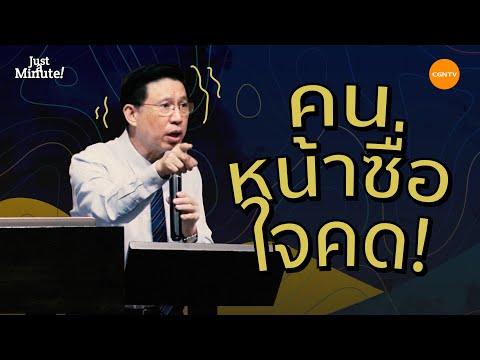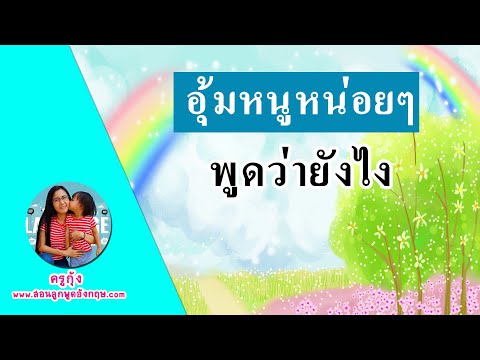หน้าซื่อใจคด หมายถึง: เข้าใจความหมายและความสำคัญในชีวิตทุกวัน
หน้าซื่อใจคด หมายถึง: เข้าใจความหมายและความสำคัญในชีวิตทุกวัน
คนหน้าซื่อใจคด! | Just A Minute Ep 26
Keywords searched by users: หน้าซื่อใจคด หมายถึง หน้าไหว้หลังหลอก หมายถึง, หน้าเนื้อใจเสือ หมายถึง, คดในข้องอในกระดูก หมายถึง, หน้าซื่อใจคด ภาษาอังกฤษ, ปากว่าตาขยิบหมายถึง, เห็นกงจักรเป็นดอกบัว หมายถึง, ภูมิฐาน หมายถึง, สิ้นเนื้อประดาตัว หมายถึง
หน้าซื่อใจคด หมายถึง: A Comprehensive Exploration
Understanding หน้าซื่อใจคด หมายถึง
In Thai culture, the phrase “หน้าซื่อใจคด” (pronounced “nā sùe jai khot”) holds profound significance, encompassing a range of emotions and behaviors. Let’s delve into the literal translation and cultural nuances of this term.
Explore the Literal Translation and Cultural Nuances
The literal translation of “หน้าซื่อใจคด” is somewhat complex. “หน้า” translates to “face,” “ซื่อใจ” translates to “trustworthy” or “sincere,” and “คด” refers to “crooked” or “devious.” Combining these elements, the phrase can be understood as “a face that betrays trust” or “a deceitful countenance.”
Culturally, this expression goes beyond its literal translation. It reflects the Thai emphasis on facial expressions and body language as important means of communication. A person with “หน้าซื่อใจคด” is often perceived as untrustworthy, insincere, or deceptive, highlighting the cultural importance placed on honesty and transparency.
Etymology of หน้าซื่อใจคด
To grasp the full essence of “หน้าซื่อใจคด,” it’s essential to trace its linguistic roots and historical development.
Trace the Linguistic Roots and Historical Development
The term’s etymology can be dissected to reveal its origins. “หน้า” has its roots in ancient Thai, signifying not only the physical face but also the metaphorical face one presents to the world. “ซื่อใจ” draws from the concept of trust or sincerity, rooted in traditional Thai values.
Over time, the amalgamation of these words evolved to encapsulate the notion of facial expressions betraying trust. The historical development of “หน้าซื่อใจคด” mirrors the cultural evolution of Thailand and the enduring importance placed on interpersonal trust.
Interpretation in Different Contexts
To gain a comprehensive understanding of “หน้าซื่อใจคด,” it’s crucial to examine how the term is used in various situations and contexts.
Examine How หน้าซื่อใจคด is Used
-
Personal Relationships: In interpersonal relationships, this expression is often applied to individuals who appear trustworthy but engage in deceptive behaviors. It warns against relying solely on appearances.
-
Professional Settings: In the workplace, “หน้าซื่อใจคด” might be used to describe colleagues or superiors who present a facade of sincerity but act deviously, potentially causing harm to others.
-
Social Interactions: Within broader social contexts, the term can be employed to caution against trusting people who may not have genuine intentions.
Cultural Significance
Delving into the cultural importance and societal implications of “หน้าซื่อใจคด” reveals how deeply embedded this concept is in Thai society.
Delve into Cultural Significance
-
Trust as a Core Value: Thailand places immense value on trust in relationships, be they personal or professional. “หน้าซื่อใจคด” serves as a reminder of the repercussions of breaching this trust.
-
Importance of Facial Expressions: Thai culture places a high premium on facial expressions as indicators of one’s character. A deceptive face contradicts the cultural ideal of sincerity.
-
Social Consequences: Being labeled with “หน้าซื่อใจคด” can have significant social consequences, impacting an individual’s reputation and relationships.
Common Usage Examples
To further illustrate the practical application of “หน้าซื่อใจคด,” let’s explore real-life examples and scenarios where the term is commonly applied.
Provide Real-life Examples
-
Friendship Betrayal: Imagine a scenario where a friend presents themselves as sincere but later engages in deceitful actions, such as spreading rumors. In this case, one might say that the friend has “หน้าซื่อใจคด.”
-
Business Deception: In a business context, a colleague who pretends to support a project but secretly undermines it might be described as having “หน้าซื่อใจคด.”
-
Romantic Relationships: If a partner appears committed but engages in unfaithful behavior, the term may be applied to highlight the deceitful nature of their actions.
Comparison with Similar Expressions
While “หน้าซื่อใจคด” captures a specific aspect of deception, it’s essential to distinguish it from similar expressions to avoid confusion.
Highlight Distinctions
-
หน้าไหว้หลังหลอก หมายถึง: This phrase implies bowing while deceiving, emphasizing a deceptive act performed with respect or deference.
-
หน้าเนื้อใจเสือ หมายถึง: “หน้าเนื้อใจเสือ” refers to a ferocious or ruthless heart hidden behind a friendly exterior, emphasizing a different facet of deception.
-
คดในข้องอในกระดูก หมายถึง: This expression signifies deceit at a deep, fundamental level, emphasizing a deceptive nature ingrained in one’s character.
Evolution of the Meaning Over Time
Examining how the meaning of “หน้าซื่อใจคด” has evolved throughout history sheds light on the dynamic nature of language and culture.
Discuss Evolution Over Time
Originally, the term may have been more literal, referring to facial expressions indicating deceit. However, as Thai society evolved, the expression expanded to encompass a broader spectrum of deceptive behaviors beyond facial cues.
In contemporary usage, “หน้าซื่อใจคด” reflects the nuanced understanding of trust and deception, adapting to the complexities of modern life and communication.
Practical Applications in Daily Life
Understanding “หน้าซื่อใจคด” on a practical level involves incorporating this awareness into daily interactions and communication.
Offer Practical Advice
-
Be Mindful of Non-Verbal Cues: Pay attention to facial expressions, body language, and gestures in communication to better discern sincerity.
-
Verify Intentions: When in doubt about someone’s motives, take the time to verify their intentions through open communication or seeking additional information.
-
Cultivate Openness: Encourage open and transparent communication in personal and professional relationships to mitigate the potential for deceit.
Regional Variances in Usage
Exploring how the meaning or usage of “หน้าซื่อใจคด” may vary across different regions or communities highlights the cultural diversity within Thailand.
Explore Regional Variances
While the core concept remains consistent, specific cultural nuances and interpretations of “หน้าซื่อใจคด” may differ in various regions. Local dialects, historical influences, and regional customs can contribute to variations in usage.
Popular Misconceptions and Clarifications
Addressing common misunderstandings or misconceptions surrounding “หน้าซื่อใจคด” is crucial for a nuanced understanding.
Address Misconceptions
-
Not Solely Facial: Emphasize that “หน้าซื่อใจคด” goes beyond facial expressions, encompassing various deceptive behaviors.
-
Cultural Sensitivity: Clarify that the term is rooted in Thai cultural values and may not have a direct equivalent in other languages.
-
Subjective Nature: Acknowledge that labeling someone with “หน้าซื่อใจคด” can be subjective, as perceptions of trustworthiness may vary.
In conclusion, “หน้าซื่อใจคด” is a multifaceted term deeply embedded in Thai culture, reflecting the societal emphasis on trust, sincerity, and the interpretation of facial expressions. By exploring its literal translation, historical roots, and practical applications, we gain a richer understanding of this nuanced expression and its relevance in contemporary Thai society.
FAQs
Q1: What does “หน้าซื่อใจคด” literally mean?
A1: The literal translation of “หน้าซื่อใจคด” is “a face that betrays trust” or “a deceitful countenance.” It implies someone who appears trustworthy but engages in deceptive behaviors.
Q2: How has the meaning of “หน้าซื่อใจคด” evolved over time?
A2: Originally more focused on facial expressions indicating deceit, the term has evolved to encompass a broader spectrum of deceptive behaviors, adapting to the complexities of modern life.
Q3: Are there regional variances in the usage of “หน้าซื่อใจคด”?
A3: While the core concept remains consistent, specific cultural nuances and interpretations of “หน้าซื่อใจคด” may vary across different regions or communities within Thailand.
Q4: Can “หน้าซื่อใจคด” be applied beyond personal relationships?
A4: Yes, the term is applicable in various contexts, including professional settings and broader social interactions, where it warns against trusting individuals who may not have genuine intentions.
Q5: How can one incorporate the understanding of “หน้าซื่อใจคด” into daily life?
A5: Practical applications include being mindful of non-verbal cues, verifying intentions when in doubt, and cultivating open and transparent communication to mitigate the potential for deceit.
Categories: อัปเดต 55 หน้าซื่อใจคด หมายถึง

หน้าไหว้หลังหลอก หมายถึง
หน้าไหว้หลังหลอก หมายถึง: เข้าใจความหมายและทฤษฎีในลึกลับ
หน้าไหว้หลังหลอก หมายถึงอะไร?
“หน้าไหว้หลังหลอก” เป็นคำที่คนบางคนอาจได้ยินมาแต่ไม่เข้าใจความหมายจริง ๆ หรือไม่ทราบถึงแง่มุมต่าง ๆ ของมัน ในบทความนี้เราจะสำรวจและอธิบายถึงหน้าไหว้หลังหลอกในทุกๆ รายละเอียด พร้อมกับคำตอบในส่วน FAQ (คำถามที่พบบ่อย) เพื่อช่วยให้คุณเข้าใจและมีความรู้ลึกลงเกี่ยวกับหัวข้อนี้.
หน้าไหว้หลังหลอก: ความหมาย
“หน้าไหว้หลังหลอก” มีทั้งคำว่า “หน้า” และ “หลังหลอก” ซึ่งต่างก็มีความหมายที่ซับซ้อนและลึกซึ้ง. นั่นคือ การพูดถึงท่าทางหรือการกระทำที่แสดงถึงความเคารพหรือการไว้ใจที่ไม่สมควร, การทำตามลำพัง, หรือการใช้ท่าทางนี้เพื่อหลอกลวง.
“หน้า” ที่นี่อาจแทนถึงบุคคลหรือกลุ่มคนที่ได้รับการทำร้าย, ตกเป็นเหยื่อ, หรือได้รับความเสียหายจากการกระทำนี้. ในบางกรณี, “หน้า” อาจจะหมายถึงศัตรู, ฝ่ายตรงข้าม, หรือบุคคลหรือกลุ่มคนที่มีไว้จุนเจือ.
“หลังหลอก” มีความหมายว่าการละเมิดหรือการให้โทษอย่างชัดแจ้ง. การใช้ “หลังหลอก” อาจจะเป็นการแสดงออกถึงความโกลาหล, การละเมิดความไว้วางใจ, หรือการกระทำที่ละเมิดกฎหมายหรือสัจจะที่ไม่ถูกต้อง.
ดังนั้น, “หน้าไหว้หลังหลอก” หมายถึงการใช้ท่าทางหรือการกระทำที่เข้าข้างหน้าอีกฝ่ายด้วยความตั้งใจที่ไม่ดี, ซึ่งมักเกิดขึ้นในบริบททางสังคม, การสังเกต, หรือการระบาดของข่าวลือ.
หน้าไหว้หลังหลอก: แง่มุมและแนวทางการเข้าแก้ไข
1. ท่าทางและการสื่อสาร
การทำหน้าไหว้หลังหลอกมักเป็นการใช้ท่าทางและภาษาทำให้คนอื่น ๆ รู้สึกถึงความเข้าใจที่ผิด, การดูถูก, หรือการละเมิด. ท่าทางอาจมีการใช้มุมมองที่ทำให้ผู้อื่นรู้สึกว่าตนเองมีค่าน้อยลงหรือถูกดูถูก.
2. การละเมิดความไว้วางใจ
การใช้หน้าไหว้หลังหลอกสามารถทำให้ผู้อื่นสูญเสียความไว้วางใจ. การละเมิดความไว้วางใจเป็นผลมาจากการทำให้ผู้อื่นรู้สึกว่ามีการทำร้าย, ขาย, หรือหลอกลวง.
3. การละเมิดกฎหมาย
หน้าไหว้หลังหลอกอาจเป็นการละเมิดกฎหมาย, โดยการใช้ท่าทางหรือการกระทำที่ต่อสู้กับกฎหมายหรือความยุติธรรม. การละเมิดกฎหมายทำให้ผู้ให้ความสนใจต้องหาทางแก้ไขในทางกฎหมาย.
4. การส่งเสริมการเข้าใจ
การป้องกันหน้าไหว้หลังหลอกสามารถทำได้โดยการส่งเสริมการเข้าใจและการสื่อสารที่ดีระหว่างกัน. การส่งเสริมความเข้าใจในหมู่คนอาจช่วยลดความขัดแย้งและป้องกันการเกิดหน้าไหว้หลังหลอก.
FAQ (คำถามที่พบบ่อย)
Q1: หน้าไหว้หลังหลอกทำไมถึงถูกเรียกนามว่า “หลังหลอก”?
A1: คำว่า “หลังหลอก” นี้มีความหมายว่าการละเมิดหรือการให้โทษ. การใช้ “หลังหลอก” ในท่าทางหรือการกระทำนี้เน้นถึงการละเมิดความไว้วางใจ, การให้โทษ, หรือการกระทำที่ไม่ถูกต้อง.
Q2: ทำไมการใช้หน้าไหว้หลังหลอกถึงถูกต้องไม่?
A2: การใช้หน้าไหว้หลังหลอกถูกต้องไม่เพราะมันเป็นการทำร้าย, ทำให้ผู้อื่นรู้สึกถึงความเข้าใจที่ผิด, หรือทำให้ความไว้วางใจลดลง. มันมักจะเป็นท่าทางที่ไม่สุภาพและเป็นที่ไม่ยอมรับในสังคม.
Q3: ท่าทางหรือการกระทำที่เรียกว่า “หน้าไหว้หลังหลอก” มักเกิดขึ้นในสถานการณ์ไหน?
A3: การใช้หน้าไหว้หลังหลอกมักเกิดขึ้นในสถานการณ์ทางรายการทีวี, การสื่อสาร, หรือการเข้าสังคม. มีทั้งท่าทางและภาษาที่ใช้ทำให้ผู้อื่นรู้สึกถึงความเดือดร้อนหรือการละเมิด.
Q4: วิธีการป้องกันหน้าไหว้หลังหลอกคืออะไร?
A4: วิธีการป้องกันหน้าไหว้หลังหลอกรวมถึงการสื่อสารที่ชัดเจน, การส่งเสริมความเข้าใจ, และการสนับสนุนทัศนคติที่ให้ความเคารพ. การส่งเสริมความเข้าใจอาจช่วยลดความขัดแย้งและป้องกันการเกิดหน้าไหว้หลังหลอก.
สรุป
หน้าไหว้หลังหลอกเป็นท่าทางหรือการกระทำที่สามารถทำให้คนรู้สึกถึงความเข้าใจที่ผิด, การละเมิดความไว้วางใจ, หรือการละเมิดกฎหมาย. การป้องกันหน้าไหว้หลังหลอกควรเน้นที่การสื่อสารที่ชัดเจน, การส่งเสริมความเข้าใจ, และการสนับสนุนทัศนคติที่ให้ความเคารพ. ความรู้เกี่ยวกับหน้าไหว้หลังหลอกนี้จะช่วยให้คุณเข้าใจและป้องกันการเจอกับสถานการณ์ที่ไม่พึงประสงค์นี้ได้.
ข้อควรระวัง: การใช้หน้าไหว้หลังหลอกอาจทำให้ความสัมพันธ์ทางสังคมและการสื่อสารเสียหายได้, ดังนั้นควรเลี่ยงการใช้ท่าทางหรือการกระทำที่เป็นที่ไม่ยอมรับในสังคม.
หน้าเนื้อใจเสือ หมายถึง
หน้าเนื้อใจเสือ หมายถึง: Exploring the Depths of Thai Idiom
หน้าเนื้อใจเสือ หมายถึง, or “The Heart of a Tiger,” is a captivating Thai idiom that encapsulates a rich cultural and linguistic heritage. In this article, we will delve into the intricacies of this expression, exploring its meanings, origins, and cultural significance. Our objective is to provide a comprehensive guide, offering detailed information and elucidating specific concepts related to หน้าเนื้อใจเสือ หมายถึง.
Understanding หน้าเนื้อใจเสือ หมายถึง
Literal Translation and Interpretation:
The literal translation of หน้าเนื้อใจเสือ หมายถึง is “the heart of a tiger.” However, its true meaning extends beyond the literal translation. In Thai culture, the tiger is a symbol of strength, courage, and fierceness. Therefore, when someone is described as having the heart of a tiger, it implies that they possess these admirable qualities.
Metaphorical Usage:
The idiom is often used metaphorically to describe individuals who are bold, fearless, and determined. It signifies a person’s inner strength, resilience, and ability to face challenges with courage. The use of the tiger as a metaphor adds a layer of cultural symbolism, as tigers are revered animals in Thai folklore and are associated with power and protection.
Origins and Cultural Significance
Historical Roots:
While the exact origin of the expression may be challenging to trace, it is deeply rooted in Thai cultural history. Tigers have held significant symbolism in Thai folklore and mythology, appearing in various stories and legends as majestic and powerful creatures. The choice of a tiger to represent strength and bravery reflects the cultural ethos of the Thai people.
Cultural Context:
In Thai society, the concept of หน้าเนื้อใจเสือ หมายถึง goes beyond individual attributes and extends to communal values. Communities that exhibit collective strength, resilience, and fearlessness are often described using this idiom. It reinforces the importance of courage and determination not just at an individual level but also within the fabric of society.
Usage in Everyday Language
Complimentary Connotations:
When used to describe a person, หน้าเนื้อใจเสือ หมายถึง carries complimentary connotations. It is a way of acknowledging and praising someone’s tenacity, bravery, and ability to confront challenges head-on. This usage is common in both casual conversations and more formal settings.
Motivational Context:
The expression is frequently employed in motivational contexts, inspiring individuals to approach life with a fearless and determined mindset. It is often used to uplift and encourage others to embrace challenges and adversities, much like the tiger facing the trials of the jungle.
FAQ Section
1. Can หน้าเนื้อใจเสือ หมายถึง be used for both individuals and groups?
Yes, the idiom can be used to describe both individuals and communities. It extends its metaphorical reach to encompass collective strength and courage.
2. Are there similar idioms in other cultures?
While the metaphor of animal characteristics symbolizing human qualities is common in many cultures, the specific combination of a tiger’s heart is unique to Thai culture.
3. How can one cultivate หน้าเนื้อใจเสือ within oneself?
Cultivating the heart of a tiger involves developing resilience, facing challenges with courage, and embracing a determined mindset. It is a continuous process of personal growth and self-discovery.
4. Is the idiom used in contemporary Thai literature and media?
Yes, หน้าเนื้อใจเสือ หมายถึง continues to be a popular and relevant expression in contemporary Thai literature, media, and everyday conversations.
In conclusion, หน้าเนื้อใจเสือ หมายถึง is a captivating idiom that transcends its literal translation, embodying the spirit of strength and courage inherent in Thai culture. By understanding its origins, cultural significance, and everyday usage, one can appreciate the depth and richness of this expression that continues to resonate in the hearts and minds of the Thai people.
คดในข้องอในกระดูก หมายถึง
คดในข้องอในกระดูก หมายถึง: แนวทางและข้อมูลลึกเบาะแสให้ความเข้าใจ
คำถามที่พบบ่อย (FAQ)
-
คดในข้องอในกระดูกคืออะไร?
- คดในข้องอในกระดูกหมายถึง การกระทบของกระดูกข้องอที่สามารถเกิดขึ้นจากการใช้งานที่ผิดพลาดหรือจากการบาดเจ็บ ซึ่งอาจทำให้เกิดอาการปวดและผลกระทบต่อการเคลื่อนไหวของร่างกาย
-
วิธีการรักษาคดในข้องอในกระดูกอย่างไร?
- การรักษาคดในข้องอในกระดูกจะขึ้นอยู่กับความรุนแรงของการบาดเจ็บ บางกรณีอาจต้องใช้การพักผ่อนและการทำกายภาพบำบัด เพื่อช่วยเสริมสร้างกล้ามเนื้อและลดอาการปวด
-
มีวิธีป้องกันคดในข้องอในกระดูกได้หรือไม่?
- การป้องกันคดในข้องอในกระดูกสามารถทำได้โดยการให้ความสำคัญกับการใช้ท่าทางที่ถูกต้องในขณะทำกิจกรรมทางกาย และการปฏิบัติตนในการทำงานที่ต้องใช้ความพยายาม
-
มีกิจกรรมที่เสี่ยงต่อคดในข้องอในกระดูกไหม?
- กิจกรรมที่ต้องใช้ความหมุนเวียนข้องอหรือทำการโค้งตัวมีโอกาสทำให้เกิดคดในข้องอในกระดูก ตัวอย่างเช่นการทำงานที่ต้องก้มหรือเงยหลังนาน หรือกิจกรรมทางกายที่ต้องทำท่าทางที่เปลี่ยนแปลงบ่อย
-
การเตรียมความพร้อมในการทำกิจกรรมทางกายสามารถช่วยลดความเสี่ยงได้อย่างไร?
- การเตรียมความพร้อมก่อนทำกิจกรรมทางกาย เช่น การทำการออกกำลังกายเบา ๆ เพื่อเตรียมกล้ามเนื้อและข้อต่าง ๆ ทำให้ร่างกายมีความยืดหยุ่นและพร้อมรับมือกับการเคลื่อนไหว
-
การรักษาคดในข้องอในกระดูกในบ้านได้หรือไม่?
- การรักษาคดในข้องอในกระดูกในบ้านสามารถทำได้โดยการใช้แอ่นเอน หรือการวางหมอนรองคอเพื่อรักษาการกระทบของข้องอ และการพักผ่อนนานๆ ส่วนบางกรณีที่รุนแรงอาจต้องไปพบแพทย์เพื่อรับการรักษาเพิ่มเติม
-
การทำกายภาพบำบัดมีบทบาทอย่างไรในการรักษาคดในข้องอในกระดูก?
- การทำกายภาพบำบัดเป็นส่วนสำคัญในการรักษาคดในข้องอในกระดูก เนื่องจากช่วยเสริมสร้างกล้ามเนื้อที่เกี่ยวข้องและเพิ่มความยืดหยุ่นของข้อ ทำให้รักษาและป้องกันการกลับมาของอาการ
-
การรักษาคดในข้องอในกระดูกในเด็กมีข้อแตกต่างจากการรักษาในผู้ใหญ่อย่างไร?
- การรักษาคดในข้องอในกระดูกในเด็กอาจต้องให้ความสำคัญกับปัจจัยทางจิตวิทยาและการพัฒนาของร่างกาย การให้การรักษาที่เหมาะสมในวัยเยาว์จะช่วยให้เด็กพัฒนาการและกลับสู่สภาพปกติได้เร็วขึ้น
-
คำแนะนำสำหรับผู้ที่มีงานที่ต้องทำท่าทางที่ต้องการการหมุนเวียนข้องอมากในทุกวัน?
- สำหรับผู้ที่มีงานที่ต้องการการหมุนเวียนข้องอมาก ควรใช้ท่าทางที่ถูกต้อง และมีการพักผ่อนในระยะเวลาที่เหมาะสม เพื่อลดความเสี่ยงของคดในข้องอในกระดูก
-
มีอาหารหรือวิตามินที่ช่วยบำรุงกระดูกและลดความเสี่ยงของคดในข้องอไหม?
- อาหารที่รวมถึงแคลเซียมและวิตามิน D สามารถช่วยบำรุงกระดูกและลดความเสี่ยงของคดในข้องอในกระดูก การรับประทานอาหารที่มีประโยชน์สามารถเสริมสร้างและบำรุงร่างกายได้
คำสำคัญ: คดในข้องอในกระดูก หมายถึง
การรักษาคดในข้องอในกระดูก เน้นที่การพักผ่อน การทำกายภาพบำบัด และการป้องกันในการทำกิจกรรมทางกายที่มีความเสี่ยง รวมถึงการเตรียมความพร้อมก่อนทำกิจกรรม เป็นปัจจัยสำคัญที่ช่วยลดความเสี่ยงและสนับสนุนการรักษาให้ได้ผลดีที่สุด หากมีอาการที่ไม่ดีขึ้น ควรพบแพทย์เพื่อการวินิจฉัยและรักษาเพิ่มเติม
ความเข้าใจเกี่ยวกับคดในข้องอในกระดูก หมายถึง เป็นพื้นฐานที่สำคัญสำหรับการรักษาและการป้องกัน ด้วยข้อมูลที่ครอบคลุมและเน้นความลึกซึ้ง เพื่อเสริมสร้างความเข้าใจและประโยชน์ที่สามารถนำไปใช้ในการดูแลรักษาสุขภาพของท่านและคนที่คุณรัก
แบ่งปัน 49 หน้าซื่อใจคด หมายถึง


See more here: cacanh24.com
Learn more about the topic หน้าซื่อใจคด หมายถึง.
- หน้าซื่อใจคด แปลว่าอะไร ดูความหมาย ตัวอย่างประโยค หมายความว่า …
- -หน้าซื่อใจคด- แปลว่าอะไร ดูความหมาย ตัวอย่างประโยค หมายความ …
- หน้าซื่อใจคด – พจนานุกรมแปล ไทย-ไทย ราชบัณฑิตยสถาน
- อาหารฝ่ายวิญญาณSpiritual Food – คนหน้าซื่อใจคด คือ …
- สำนวนไทย – สำนวนที่ ๑๓. “ หน้าซื่อใจคด ”…
- หน้าซื่อใจคด
See more: https://cacanh24.com/category/local blog





